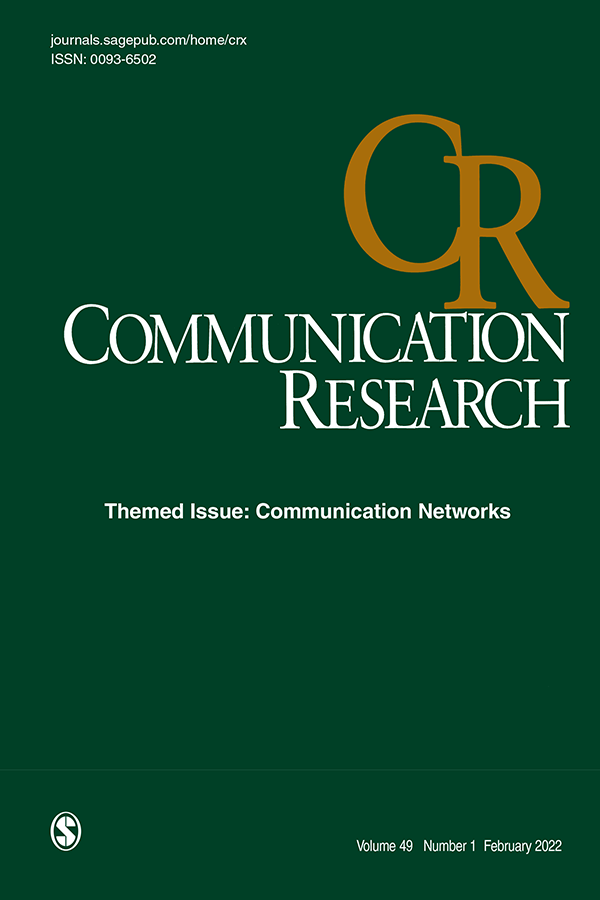跨文化叙事中代码混合的影响:处理流畅度如何影响叙事参与度和对外部群体的态度
IF 3.2
1区 文学
Q1 COMMUNICATION
引用次数: 0
摘要
本实验(N = 1,241)研究了代码混合(定义为使用一种以上的语言)对处理流畅性、叙述参与和跨文化态度的影响。通过对以英语为母语的美国人进行抽样调查,我们发现,作为跨文化交际的一个常见特征,包含代码混合的叙述会让人感觉更难以处理,进而导致更多的外群体负面偏见和更少的叙述参与。这些研究结果整合并扩展了跨文化交际和叙事理论,并考虑了伴随故事中人物的多样化表现而出现的挑战和机遇。不过,我们并没有强调这些挑战,而是考虑了以理论为基础的策略,以改善受众对跨文化内容的接受,并希望通过这样做,为传播实践提供信息,从而使受众更加尊重他人。本文章由计算机程序翻译,如有差异,请以英文原文为准。
The Impacts of Code-Mixing in a Cross-Cultural Narrative: How Processing Fluency Impacts Narrative Engagement and Attitudes Toward Out-Groups
This experiment (N = 1,241) investigates the impact of code-mixing, defined as the use of more than one language, on processing fluency, narrative engagement, and cross-cultural attitudes. Using a sample of native English speakers located in the United States, we found that narratives that include code-mixing, a common feature of intercultural communication, felt more difficult to process and, in turn, led to more negative out-group bias and less narrative engagement. These findings integrate and extend intercultural communication and narrative theory and consider the challenges and opportunities that accompany diverse representations of characters in storytelling. Rather than highlight these challenges, however, we consider theoretically based strategies to improve audiences’ reception to cross cultural content and, in doing so, hope to inform communication practices that lead to a greater regard for others.
求助全文
通过发布文献求助,成功后即可免费获取论文全文。
去求助
来源期刊

Communication Research
COMMUNICATION-
CiteScore
17.10
自引率
0.00%
发文量
20
期刊介绍:
Empirical research in communication began in the 20th century, and there are more researchers pursuing answers to communication questions today than at any other time. The editorial goal of Communication Research is to offer a special opportunity for reflection and change in the new millennium. To qualify for publication, research should, first, be explicitly tied to some form of communication; second, be theoretically driven with results that inform theory; third, use the most rigorous empirical methods; and fourth, be directly linked to the most important problems and issues facing humankind. Critieria do not privilege any particular context; indeed, we believe that the key problems facing humankind occur in close relationships, groups, organiations, and cultures.
 求助内容:
求助内容: 应助结果提醒方式:
应助结果提醒方式:


